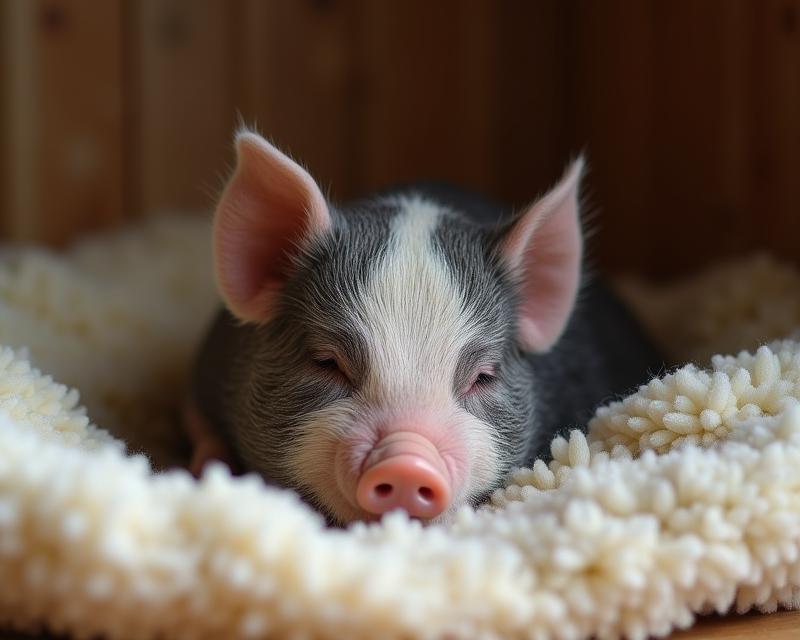Quarantine Snooze: Is Your Piggy Just Resting?
Publish in Health el 28/06/2025 19:12
Quarantine Snooze: Is Your Piggy Just Resting?
Bringing a new pet home is so exciting! But it also comes with a period of adjustment, especially when it comes to health and quarantine. If your new pot-bellied pig is spending a lot more time sleeping than usual during their quarantine period, don't panic! It's actually quite common and often a sign that they're just processing everything.

Quarantine is designed to protect your existing pets and ensure your new pig is healthy. It can be stressful for them! A new environment, new smells, new sounds – it's a lot to take in. Sleep is a natural way for animals to cope with stress and adjust to new surroundings. Think of it like a big, long nap to recharge their batteries. They're conserving energy while their bodies adjust to their new home and routine.
What's Normal During Quarantine?
Generally, you can expect a new piglet to sleep 12-16 hours a day during the first few weeks of quarantine. This is perfectly normal! Alongside sleeping, they might also be a little quieter than usual, less interested in playing, and perhaps a bit hesitant to eat at first. It's important to provide them with a comfortable, safe space and let them settle in at their own pace. Make sure they have access to fresh water and their usual food, even if they aren't eating much.
However, while increased sleep is usually a good thing during quarantine, be sure to monitor for other signs of illness. If your pig is also showing signs like loss of appetite for more than 24 hours, diarrhea, vomiting, coughing, or any unusual discharge, it's best to contact your veterinarian immediately. A little extra rest is usually just part of the adjustment process, but it's always better to be safe than sorry. With a little patience and understanding, your new pig will soon be exploring their new home and settling into a happy, healthy life with you!





